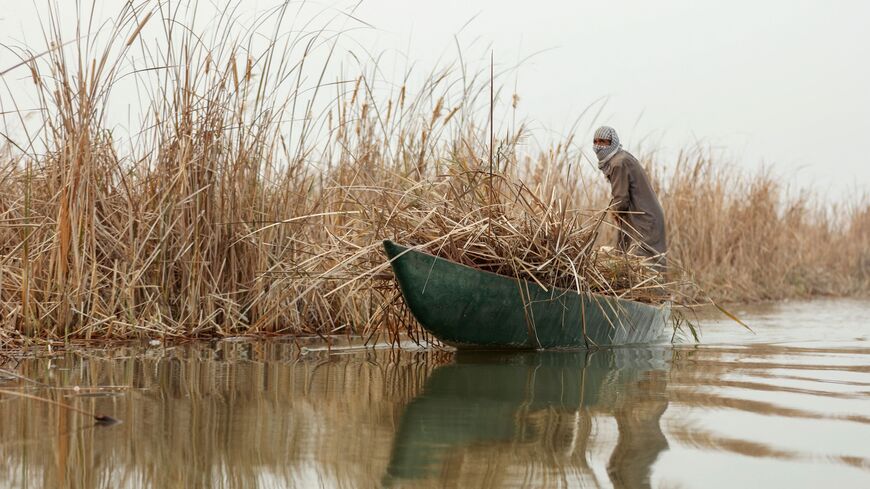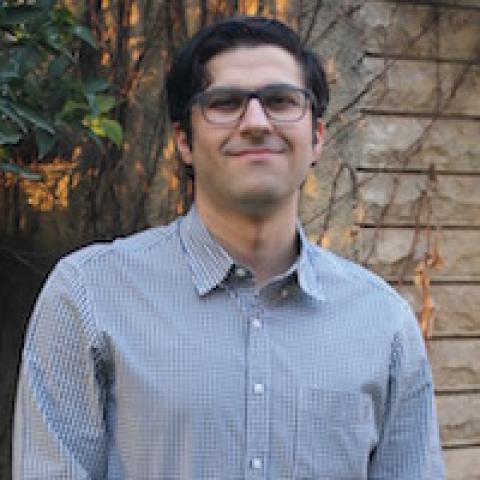Iraqi Prime Minister Mohammed Shia al-Sudani visited the United Arab Emirates on Thursday, as Abu Dhabi announced $500,000 in funding toward water infrastructure in western Iraq’s Sinjar.
Sudani met with UAE President Sheikh Mohamed bin Zayed to discuss bilateral cooperation and international developments. The two specifically discussed ways to enhance economic, trade, investment and development cooperation, according to the official Emirates News Agency.
The UAE also announced Thursday it had allocated $500,000 toward water infrastructure in western Iraq’s Sinjar. It is the second phase of the project in coordination with Nadia’s Initiative, the agency reported. Nadia’s Initiative is led by Iraqi Yazidi activist Nadia Murad, who was held captive by the Islamic State before her escape in 2014. The initiative works on development in Sinjar.
The Emirati president had invited Sudani to the UAE back in December. The two also held a phone call earlier this month, according to the official Iraqi News Agency.
#رئيس_الدولة ورئيس وزراء #العراق يبحثان العلاقات الأخوية وفرص تنمية التعاون والعمل المشترك بين دولة #الإمارات و #العراق وتنويع آفاقه في جميع المجالات لما فيه مصالحهما المتبادلة إضافة إلى عدد من القضايا والموضوعات ذات الاهتمام المشترك.#فيديو_وام pic.twitter.com/E5USRwpFUi
— وكالة أنباء الإمارات (@wamnews) February 9, 2023
Why it matters: Iraq has been seeking better relations with its Gulf neighbors for several years despite still being tied to the Gulf’s regional foe, Iran. Sudani’s predecessor, former Prime Minister Mustafa al-Kadhimi, also visited the UAE as well as Saudi Arabia in 2021.
Bilal Wahab, the Wagner Fellow at the Washington Institute for Near East Policy, said Sudani visited the UAE to boost ties with the Gulf amid Iran's continued influence in Iraq. "He needs regional support. He is a prime minister who comes with a big pro-Iran stamp on his back," Wahab told Al-Monitor. “The inner circle that formed the government is known to be very tied to Iran."
Sudani's government includes several pro-Iran political actors, including the Asa'ib Ahl al-Haq militia led by Qais al-Khazali, as well as former Prime Minister Nouri al-Maliki. As a result, Sudani needs to "play a balancing act" when maintaining relations with Arab states in the Gulf, according to Wahab.
Khazali notably congratulated the Iran-backed Houthi rebels in Yemen for their drone attack on Abu Dhabi last year, Al-Arabiya reported at the time. The UAE may be particularly concerned about Khazali's role in the government, according to Wahab.
“I’m sure Abu Dhabi needs assurances, and he has to give it," he said on Sudani's UAE visit.
Sudani and Kadhimi's Gulf trips are not the only signs of improving Iraq-Gulf relations. Gulf leaders flocked to Jordan in December for the Baghdad Conference for Cooperation and Partnership. Sudani called for regional reconciliation at the summit.
Emirati companies are showing increased interest in Iraq as well. Abu Dhabi’s AD Ports Group signed an oil transport deal with Iraq’s Amaan Baghdad Company last October. In February of last year, the Sharjah-based Gulftainer shipped a massive vacuum to a UAE-based oil company operating in Iraq’s Umm Qasr port.
Last month, Iraq hosted the Gulf Cup soccer tournament for the first time since 1979.
Saudi Arabia also plays a big role in Iraq’s Gulf policy. Earlier this month, Iraqi Foreign Minister Fuad Hussein said Iraq is seeking more economic cooperation with the kingdom, according to Agence France-Presse. Iraq also started connecting its electrical grid to Saudi Arabia’s last year.
Muhammad Jawad Adib wrote for Al-Monitor last year that Iran cutting electricity exports to Iraq could turn Iraq more toward the Gulf.
It is unclear how Iran will view Iraq's efforts to improve relations with the Gulf. Iraq is facing a currency crisis in part due to the US Federal Reserve's efforts to limit dollar transfers from Iraq to Iran. The Islamic Republic, still dealing economic issues of its own related to US sanctions, can allow Sudani's "Iran-friendly government" to pursue better economic ties with the Gulf, according to Wahab.
"Iran cannot afford the Iraqi economy to fall the way the Lebanese economy did. If that requires some concessions, loosening its grip on the Iraqi government … that's something Iran can tolerate," he said.
Know more: The UAE investment in Sinjar could alleviate some of the suffering there. Sinjar was ransacked by the Islamic State in 2014. The attack has been widely described as genocide against the Yazidi community in the area.
Sinjar was liberated in 2015, but tens of thousands of Yazidis still live in displacement camps in the Kurdistan Region of Iraq. Many are reluctant to return to the city, in part due to poor services there.








